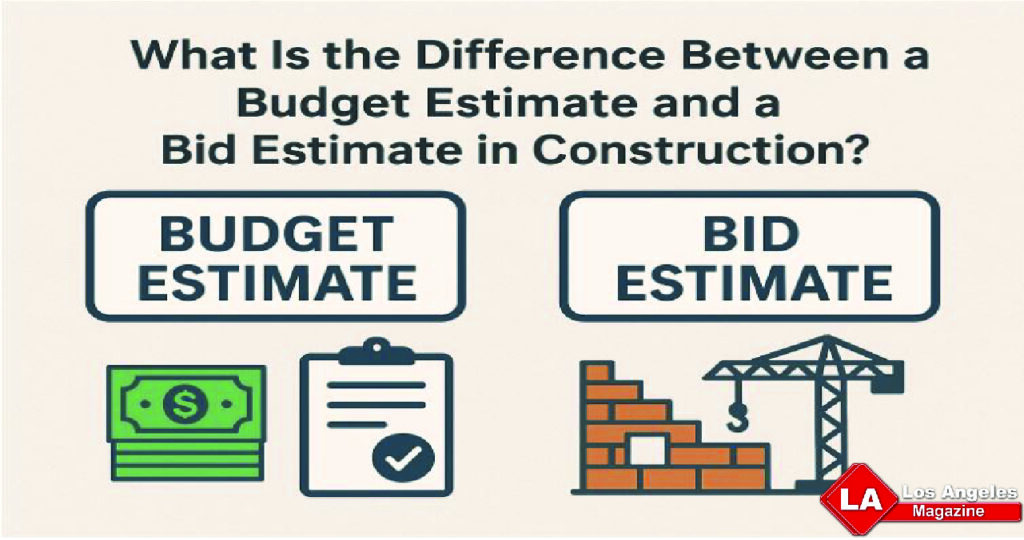In the construction industry, accurate estimating is essential for successful project planning, cost control, and contractor selection. Two commonly used estimate types, budget estimates and bid estimates, serve different purposes at different stages of a project. Understanding the distinction between them helps owners, designers, and contractors make informed decisions.
What Is a Budget Estimate?
A budget estimate is usually prepared during the early stages of project development, often before detailed drawings are available. Its primary purpose is to give project owners a general idea of the anticipated cost. Because information is limited at this stage, budget estimates are typically based on historical data, square-foot pricing, and conceptual design assumptions. They help determine project feasibility, guide financial planning, and assist in securing funding.
Early-phase pricing is also where many owners might seek support from residential construction estimating services, which help provide cost clarity before full design documents are completed.
What Is a Bid Estimate?
A bid estimate, on the other hand, is a detailed, precise cost proposal submitted by contractors once the design documents are complete. This estimate includes specific quantities, materials, labor rates, subcontractor quotes, equipment costs, and profit margins. Because it is based on finalized construction drawings and specifications, it is far more accurate than a budget estimate. The bid estimate represents the actual price a contractor is willing to charge to execute the project.
Contractors and developers often rely on professional firms like NY Cost Estimating & Takeoff Services to prepare thorough, competitive bid estimates.
Key Differences
- Stage of Project: Budget estimates occur early; bid estimates occur after design completion.
- Level of Detail: Budget estimates are broad; bid estimates are highly detailed.
- Accuracy: Budget estimates have higher variability; bid estimates aim for precise cost representation.
- Purpose: Budget estimates support planning and feasibility; bid estimates determine contractor selection and final contract value.
Conclusion
Both budget and bid estimates play essential roles in construction project management. Using each type at the appropriate stage allows owners and contractors to reduce financial risk, improve decision-making, and ensure smoother project execution.



